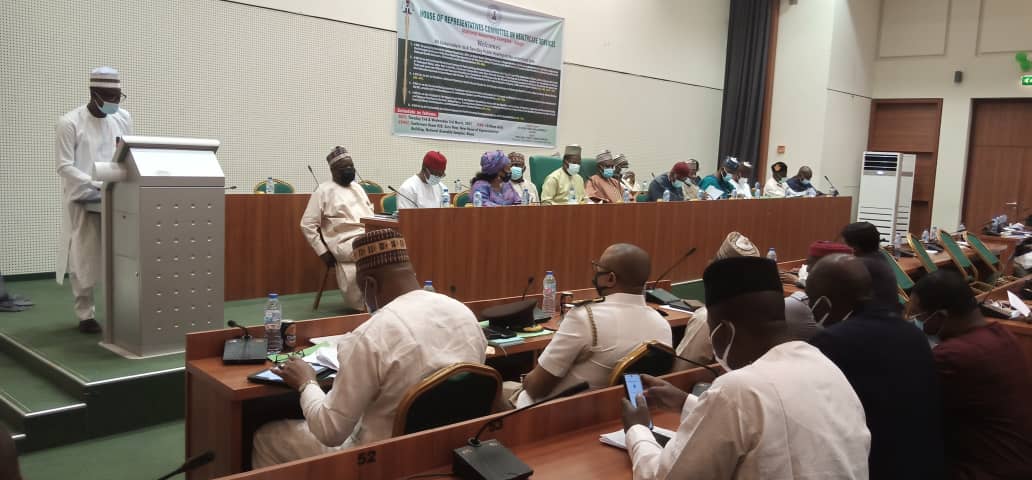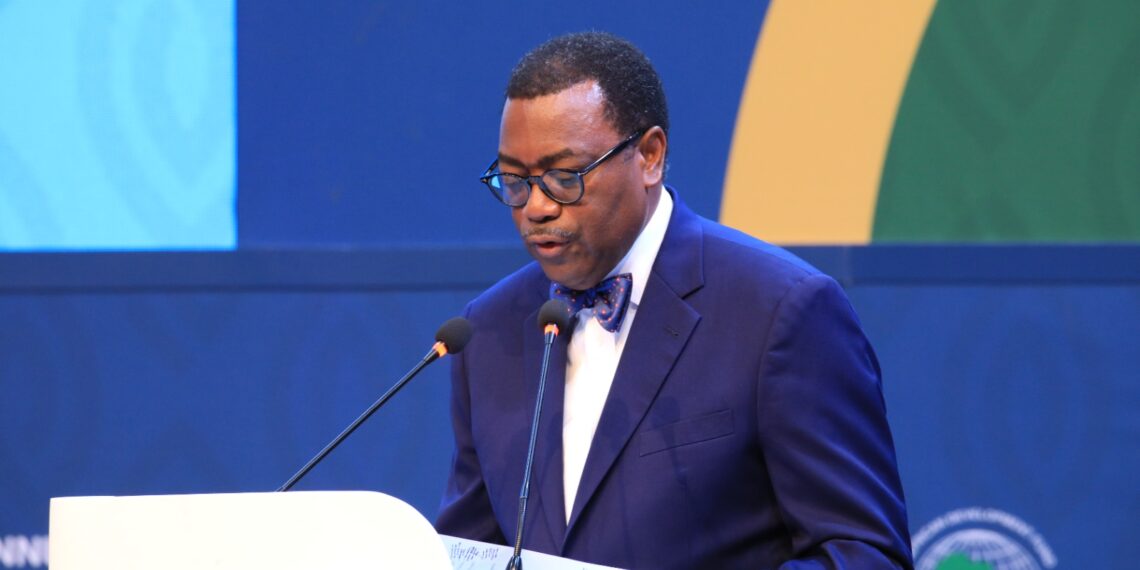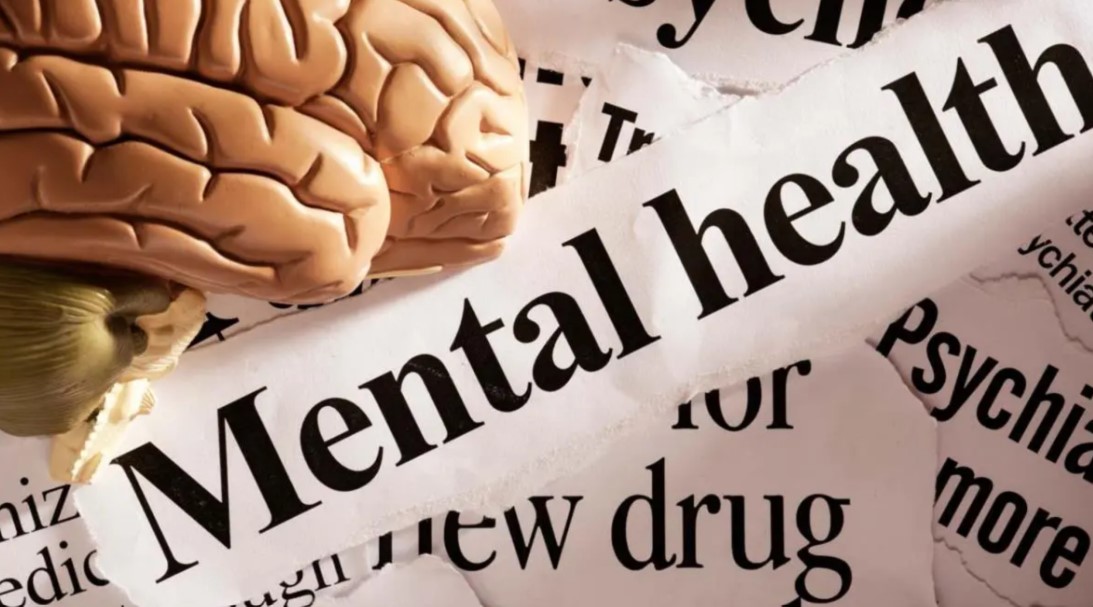
Legislating for Health: House Committee on Health Care Services holds Public Hearing on Six Bills
- Legislature
- No Comment
- 616
Background
Healthcare delivery in Nigeria has experienced progressive deterioration as a result of weakened political will on the part of successive governments to effectively solve a number of problems that have long existed in the sector over many years. As at February 2018, the country was ranked 187 out of 191 countries in the world that are compliant with Universal Health Coverage (UHC) goals, as very little of the populace are health insured, and out-of-pocket payments for health have caused households to incur huge expenditure thereby pushing them into extreme poverty(1). Also, budgetary allocations to health has been at a subpar as the country continues its quest to attain the SDGs goal 3 which aims to ensure healthy lives and promote well being for all at all ages by 2030; achieve universal health coverage, including financial risk protection, and access to quality essential health care services for all(2). To this end, reform and overhaul of the nation’s healthcare infrastructure will help to address some of the challenges.
It is based on this that the Legislature (House Committee on Health Care Services) organized a public hearing on six Bills; three of the Bills are seeking amendments to existing Laws while the others Bills are newly proposed for enactment. These are:
(a) A Bill for an Act to amend the National Health Act, 2014;
(b) A Bill for an Act to amend the National Agency for Food and Drugs Administration and Control;
(c) A Bill for an Act to amend the Compulsory Treatment and Care of Victims of Gunshots Wounds;
(d) A Bill for an Act to establish a National Electronic health Record System
(e) A Bill for an Act to establish the Nigeria Food Safety and Surveillance Corps
(f) A Bill for an Act to establish the National Agency for Food Technology Development Agency.
When signed into law, these Bills will help to strengthen and improve the national health system in specific and significant ways that will impact the lives of people for a long time.
The hearing
(a) The National Health Act 2014 serves as a legal backing for regulation, development and management of our health system. It also sets standards for delivering healthcare to all citizens(3). From 2014 till date, there have been bottlenecks in the implementation of the Act which has necessitated the call for its amendment by different stakeholders. The amendments amendments defined the basic minimum package of health services, provide more mechanisms for realizing the objectives of the principal act in providing free healthcare services to all Nigerians without prejudice to the requirement of payment of the contributory scheme stipulated in the National Health Insurance Scheme Act; and expand the scope of duties by healthcare providers(4) . Most of the stakeholders present at the public hearing expressed strong support for amendment of the Act.
(b) A Bill for an Act to amend the National Agency for Food and Drugs Administration and Control Act cap N1 Laws of the Federation of Nigeria (LFN) 2004 to regulate and control the manufacture, importation, exportation, distribution, advertisement, sale and use of regulated products(5) . This amendment captures other forms of packaging water, other than in bottles, encourage cooperation with other relevant agencies in carrying out its functions, introduce the coordination of clinical trials, and some new offenses and increase penalties for commission of offenses under the Bill. Majority of participants supported the proposed amendments in this Bill saying it will enable the agency to discharge its functions effectively.
(c) A Bill for an Act to amend the Compulsory Treatment and Care of Victims of Gunshot Wounds. The Principal Act was signed into Law in 2017 due to the sensitive nature of gunshots injuries and constant controversy among stakeholders particularly victims and their families, medical practitioners, police e.t.c. The Bill seeks to expand and bring the long title in conformity with the actual intendment of the Bill, provide punitive measures to checkmate violation and other related matters(7). Participants at the hearing supported the amendments proposed by the Bill and also suggested that there should be provision for all people in distress whether through gunshot, accident, stab, bleeding, asthma, pneumonia e.t.c.
(d) A Bill for an Act to establish a National Electronic Health Record System. This Bill seeks for the establishment, operation and management of a voluntary national electronic health record system in Nigeria to provide access to health information of recipients of healthcare services for the purposes of providing healthcare to the recipient; improve the availability and quality of health information; reduce disjointed health information by ensuring proper collation of health records and information and improve the coordination and quality of healthcare provided to healthcare recipients by different healthcare providers. Though the intendment of the Bill were not bad, however, majority of the stakeholders rejected the establishment of the proposed record system, because most of the functions of its provisions are already being carried out by other existing Acts.
(e) A Bill for an act to establish the Nigeria Food Safety and Hygiene Surveillance Corps with the functions, among others, to regulate, supervise and oversee food safety and hygiene practices in markets, eating places, training, issue national license to persons participating in raw, or cooked foods, local water vendors and handling businesses in order to avoid food and water contamination and mishandling.
(f) A Bill for an Act to establish the National Agency for Food Technology Development Agency: According to stakeholders at the hearing, the sponsors of these Bills have good intentions but the functions of the proposed agencies are been carried out by other agencies.
Bills d, e and f were rejected at the hearing as a result of duplication and conflicting functions with existing agencies already established by law.
Next steps
After this interactive hearing, it is expected that the Legislative Committee will review all the submissions on the Bills by the general public, make corrections on the Bills where necessary then report its findings with all the amendments to the House of Representatives for deliberation and consideration. Thereafter, the Bills will be read on the floor of the House of Representatives for the third time during plenary (Third Reading) and passed. The passed Bills will be considered similarly by the Senate for concurrence; after which the Bills are sent to the President for assent and become laws of the Federal Republic of Nigeria.
Written by: Philip Akoso (Economist, LISDEL)
Edited by : Abude-Aribo Juliana
References
[1] Healthcare in Nigeria – Wikipedia en.Wikipedia.org https://en.wikipedia.org/wiki/Healthcare_in_Nigeria
Accessed: 13/03/2021.
[2] Sustainable Development Goals (SDG 3)| United Nations Western Europe… https://unric.org/en/sdg-3/
Accessed: 18/03/2021.
[3] Download The Official Copy of The National Health Act 2014 (Pd f) https://www.publichealth.com.ng/download-the-official-copy-of-the-national-health-act-2014-pdf
Accessed: 13/03/2021.
[4] Reps consider bill to ensure treatment for gunshot victims| The Nation… https://thenationonlineng.net/reps-consider-bill-to-ensure-treatment-for-gunshot-victims/
Accessed: 19/03/2021.
[5] National Agency for Food and Drugs Administration and Control (NAFDAC) (Nigeria)|Devex https://www.devex.com/organizations/national-agency-for-food-and-drug-administration-and-control-nafdac-nigeria-146235
Accessed: 19/03/2021.
[6] Reps consider bill to ensure treatment for gunshot victims| The Nation… https://thenationonlineng.net/reps-consider-bill-to-ensure-treatment-for-gunshot-victims/
Accessed: 19/03/2021.
[7] Reps consider bill to ensure treatment for gunshot victims| The Nation… https://thenationonlineng.net/reps-consider-bill-to-ensure-treatment-for-gunshot-victims/
Accessed: 19/03/2021.
[8] http://www.hrorbn.org.ng/home
Accessed: 20/03/2021






